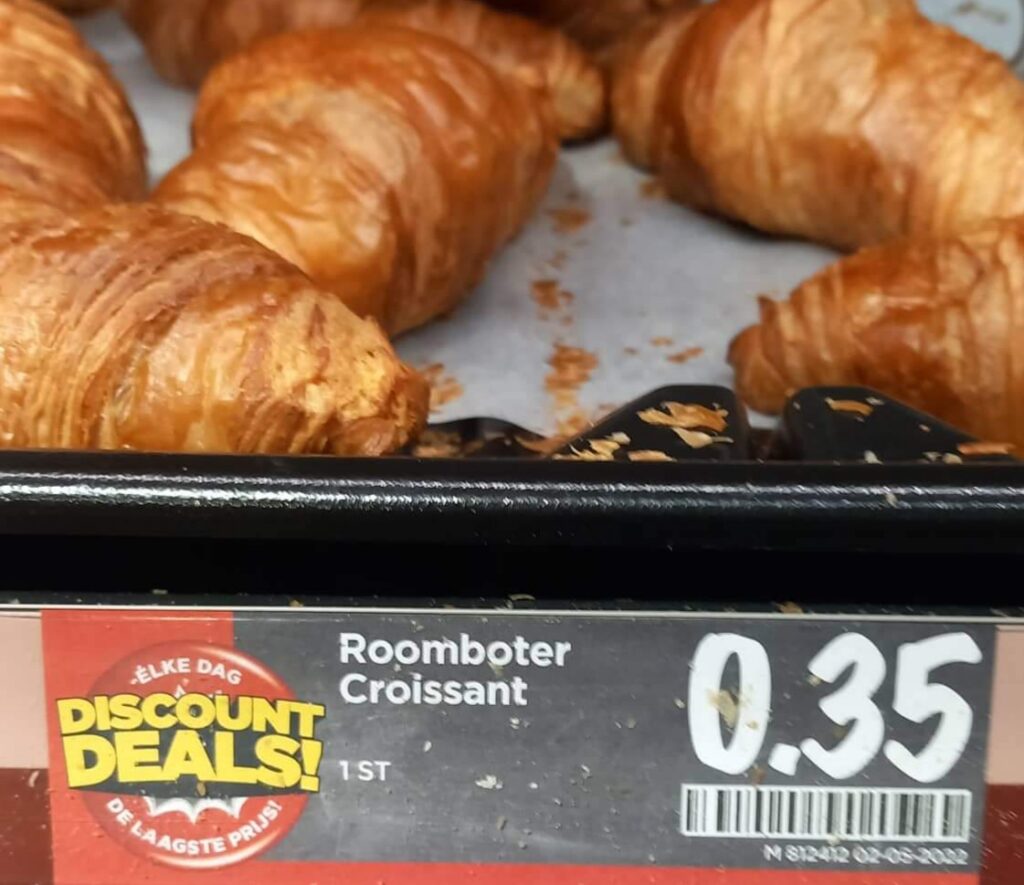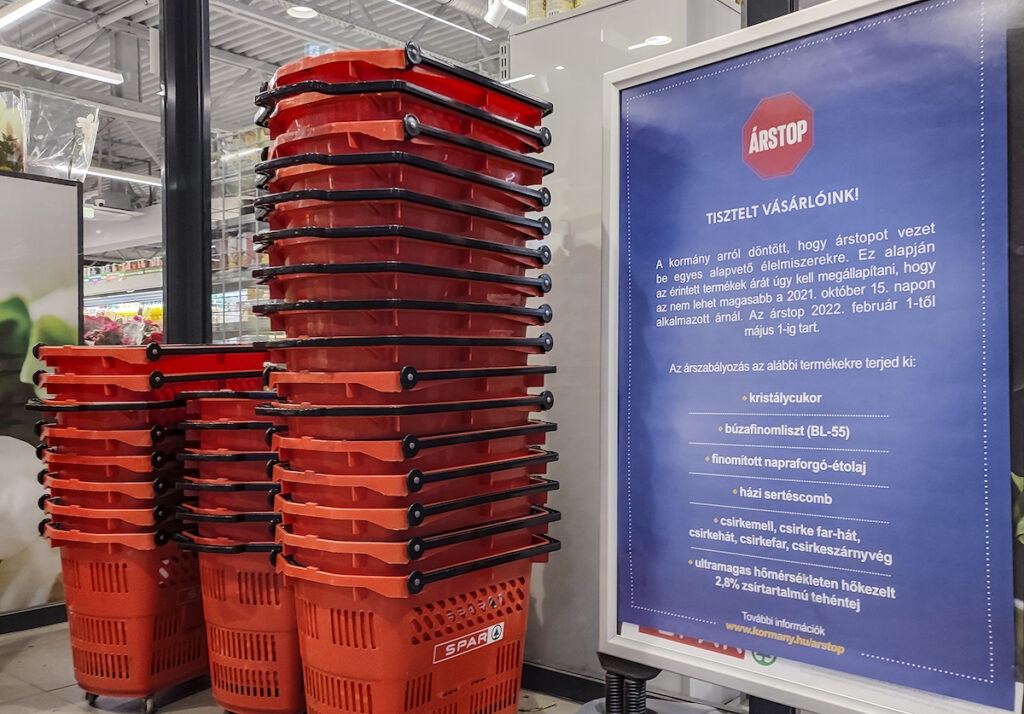A few days ago, my son, who recently began university in the Netherlands, sent me a few pictures he took in a local supermarket. Truth be told, I put him up to it because I was curious after coming across data on unbalanced food price inflation in Europe.
In the small town where he lives, near Amsterdam, a croissant costs 0.35 euros or, if they’re on offer, three for a euro.
During my next trip to the shops, I checked the biggest local grocery chain here in Czechia. One croissant cost 12.9 CZK, or 0.53 euros. That’s 50% more expensive than in the Netherlands.
I know it’s just one item, but it looks out of place given the average annual salary in the Netherlands is almost double that in Czechia. What we’re experiencing here is a fundamental change: although wages are going up in Eastern Europe, prices are rising way faster, ending a decades-long trend when lower wages meant lower prices in the region.
In August, on average, bread in the European Union was 18% more expensive than a year ago. But the price rise in every Western European country was below that average. People in the Netherlands pay less than 10% more, while here, in Prague, prices have gone up almost 30% and in my homeland Hungary 66%.
I wonder how fair it is that millions of Central and Eastern Europeans work in the food industry in Western Europe and send much of their hard-earned money home, only to see it worth so much less in the grocery store.
I’m happy for my son, but I worry about the financial security of my friends and family here. Who will pay the price? Not just of bread, but of rising inequality.






